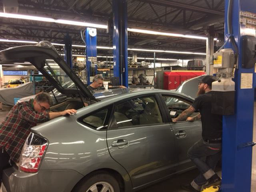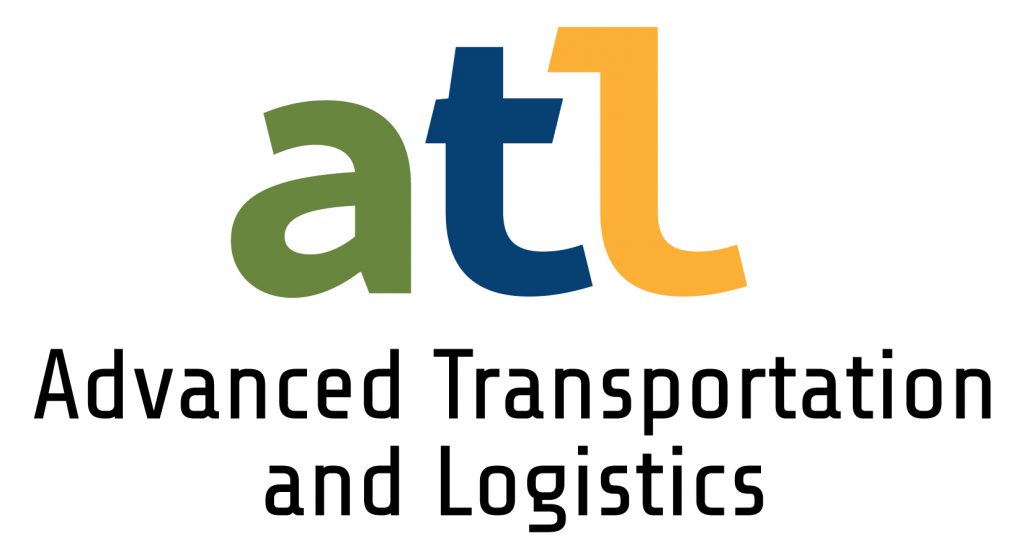
Chabot College instructors attend training sessions led by Jack Rosebro, founder of Perfect Sky.
Over the past 18 months, community colleges funded by the Energy Commission’s Alternative Fuel and Vehicle Technology Training Enhancement Program were able to provide professional development training to nearly 170 instructors across the state.
 Technical training for faculty was a crucial component of the contract agreement, enabling them to bring new alternative fuel vehicle technology into the classroom and technical automotive laboratories on their respective campuses.
Technical training for faculty was a crucial component of the contract agreement, enabling them to bring new alternative fuel vehicle technology into the classroom and technical automotive laboratories on their respective campuses.
Training included the latest in electrical and hybrid vehicles, natural gas and fuel cell technical training and training in vehicle system diagnostics and diagnostic tools for alternative fuel vehicles.
Instructors in Chabot College’s Hybrid and Alternative Fuel Vehicles program are ready to teach their students the latest technology thanks to training from one of the industry’s leading professional development providers and Energy Commission funding.
Chabot College faculty attended multi-day training sessions led by Jack Rosebro, founder of Perfect Sky. The training covered diagnostics equipment, scope testing, common Prius issues and diagnoses and more.
“The information and knowledge, and hands-instruction I received during the training will be very helpful in the hybrid class that I will be facilitating this semester,” said Chabot instructor Ed Snider. “Using these tools in my next class will help my students achieve a better understanding of hybrid vehicles.”

City College of San Francisco automotive faculty troubleshooting a bugged (failure intentionally manifested) vehicle.
Greg Jones, longtime mechanic at San Francisco’s famed Luscious Garage, led a three-day training session on the City College of San Francisco campus just prior to the start of the fall 2017 semester. Since Jones’s business is responsible for maintenance and repair of San Francisco’s hybrid taxi fleet, he was able to bring failed hybrid parts to use in the training.
Instructors worked through diagnosis and are now able to pass that knowledge along to their students using those same parts. August Barone, Automotive Instructor at CCSF said,
“I enjoyed the hands-on approach to the various modules as well as the theory presentation on the Hydrogen Cell Vehicles. I now feel more confident to present the material to my students both in the classroom as well as in the lab.”
Further south, Raj Dhillon, Automotive Technology instructor at Saddleback College attended BMW training at Ontario western regional headquarters. Dhillon learned about BMW High-voltage Battery demonstration, including the removal of cell modules, at the two-day training.
Some colleges held train-the-trainers for their faculty. College of the Desert conducted one that covered CNG Near-Zero Engines as well as a training on the Hydrogen Mirai. Each college participating in the sessions was provided with a tool or piece of equipment to assist them with their courses at their college.
American River College’s Automotive Technology program hosted Craig Van Batenburg of ACDC to provide an advanced electric vehicle training course. This course gathered 12 instructors from around the North/Far North area to lean about electric vehicle components, systems and test procedures. The course content was determined by polling several northern California instructors, and focused primarily on two vehicle models: the Nissan Leaf and Tesla Model S.
The value of faculty professional development in the alternative fuels sector cannot be overstated. Those entering the workforce must have a firm foundation in automotive technology in order to quickly adapt to continual technological changes in alternative fuel and advanced automotive vehicle technology.


